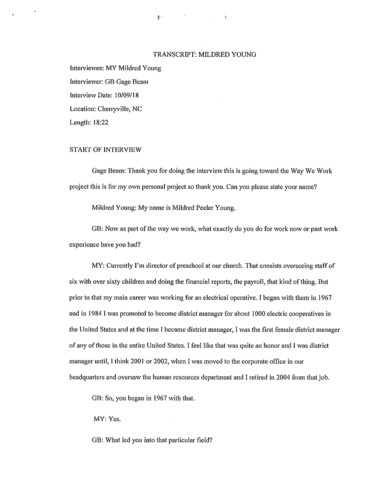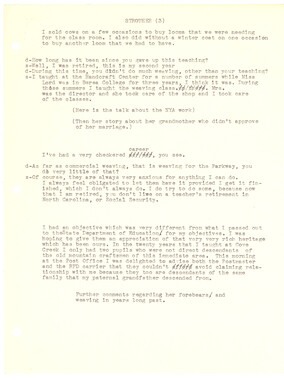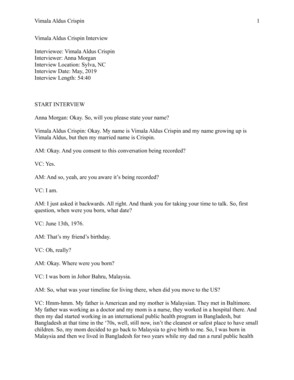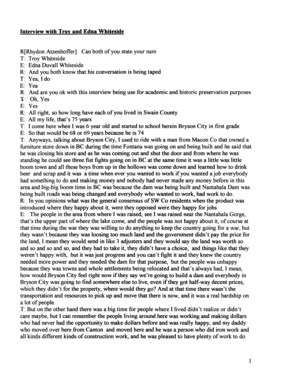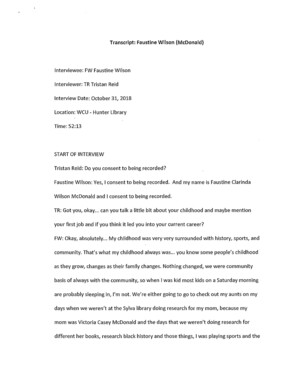Western Carolina University (21)
View all
- Canton Champion Fibre Company (2308)
- Cherokee Traditions (291)
- Civil War in Southern Appalachia (165)
- Craft Revival (1942)
- George Masa Collection (135)
- Great Smoky Mountains - A Park for America (2901)
- Highlights from Western Carolina University (422)
- Horace Kephart (941)
- Journeys Through Jackson (159)
- LGBTQIA+ Archive of Jackson County (85)
- Oral Histories of Western North Carolina (314)
- Picturing Appalachia (6798)
- Stories of Mountain Folk (413)
- Travel Western North Carolina (153)
- Western Carolina University Fine Art Museum Vitreograph Collection (129)
- Western Carolina University Herbarium (92)
- Western Carolina University: Making Memories (738)
- Western Carolina University Publications (2491)
- Western Carolina University Restricted Electronic Theses and Dissertations (146)
- Western North Carolina Regional Maps (71)
- World War II in Southern Appalachia (131)
University of North Carolina Asheville (6)
View all
- Allanstand Cottage Industries (62)
- Appalachian National Park Association (53)
- Bennett, Kelly, 1890-1974 (1463)
- Berry, Walter (76)
- Brasstown Carvers (40)
- Carver, George Washington, 1864?-1943 (26)
- Cathey, Joseph, 1803-1874 (1)
- Champion Fibre Company (233)
- Champion Paper and Fibre Company (297)
- Cherokee Indian Fair Association (16)
- Cherokee Language Program (22)
- Crowe, Amanda (40)
- Edmonston, Thomas Benton, 1842-1907 (7)
- Ensley, A. L. (Abraham Lincoln), 1865-1948 (275)
- Fromer, Irving Rhodes, 1913-1994 (70)
- George Butz (BFS 1907) (46)
- Goodrich, Frances Louisa (120)
- Grant, George Alexander, 1891-1964 (96)
- Heard, Marian Gladys (60)
- Kephart, Calvin, 1883-1969 (15)
- Kephart, Horace, 1862-1931 (313)
- Kephart, Laura, 1862-1954 (39)
- Laney, Gideon Thomas, 1889-1976 (439)
- Masa, George, 1881-1933 (61)
- McElhinney, William Julian, 1896-1953 (44)
- Niggli, Josephina, 1910-1983 (10)
- North Carolina Park Commission (105)
- Osborne, Kezia Stradley (9)
- Owens, Samuel Robert, 1918-1995 (11)
- Penland Weavers and Potters (36)
- Roberts, Vivienne (15)
- Roth, Albert, 1890-1974 (142)
- Schenck, Carl Alwin, 1868-1955 (1)
- Sherrill's Photography Studio (2565)
- Southern Highland Handicraft Guild (127)
- Southern Highlanders, Inc. (71)
- Stalcup, Jesse Bryson (46)
- Stearns, I. K. (213)
- Thompson, James Edward, 1880-1976 (226)
- United States. Indian Arts and Crafts Board (130)
- USFS (683)
- Vance, Zebulon Baird, 1830-1894 (1)
- Weaver, Zebulon, 1872-1948 (58)
- Western Carolina College (230)
- Western Carolina Teachers College (282)
- Western Carolina University (2008)
- Western Carolina University. Mountain Heritage Center (18)
- Whitman, Walt, 1819-1892 (10)
- Wilburn, Hiram Coleman, 1880-1967 (73)
- Williams, Isadora (3)
- Cain, Doreyl Ammons (0)
- Crittenden, Lorraine (0)
- Rhodes, Judy (0)
- Smith, Edward Clark (0)
- Appalachian Region, Southern (2924)
- Asheville (N.C.) (1941)
- Avery County (N.C.) (26)
- Blount County (Tenn.) (195)
- Buncombe County (N.C.) (1672)
- Cherokee County (N.C.) (283)
- Clay County (N.C.) (556)
- Graham County (N.C.) (236)
- Great Smoky Mountains National Park (N.C. and Tenn.) (525)
- Haywood County (N.C.) (3569)
- Henderson County (N.C.) (70)
- Jackson County (N.C.) (4913)
- Knox County (Tenn.) (35)
- Knoxville (Tenn.) (13)
- Lake Santeetlah (N.C.) (10)
- Macon County (N.C.) (420)
- Madison County (N.C.) (215)
- McDowell County (N.C.) (39)
- Mitchell County (N.C.) (135)
- Polk County (N.C.) (35)
- Qualla Boundary (982)
- Rutherford County (N.C.) (76)
- Swain County (N.C.) (2182)
- Transylvania County (N.C.) (270)
- Watauga County (N.C.) (12)
- Waynesville (N.C.) (86)
- Yancey County (N.C.) (72)
- Aerial Photographs (3)
- Aerial Views (60)
- Albums (books) (4)
- Articles (1)
- Artifacts (object Genre) (228)
- Bibliographies (1)
- Biography (general Genre) (2)
- Cards (information Artifacts) (38)
- Clippings (information Artifacts) (191)
- Copybooks (instructional Materials) (3)
- Crafts (art Genres) (622)
- Depictions (visual Works) (21)
- Design Drawings (1)
- Drawings (visual Works) (185)
- Envelopes (73)
- Exhibitions (events) (1)
- Facsimiles (reproductions) (1)
- Fiction (general Genre) (4)
- Financial Records (12)
- Fliers (printed Matter) (67)
- Glass Plate Negatives (381)
- Guidebooks (2)
- Internegatives (10)
- Interviews (815)
- Land Surveys (102)
- Letters (correspondence) (1013)
- Manuscripts (documents) (618)
- Maps (documents) (177)
- Memorandums (25)
- Minutes (administrative Records) (59)
- Negatives (photographs) (6090)
- Newsletters (1290)
- Newspapers (2)
- Notebooks (8)
- Occupation Currency (1)
- Paintings (visual Works) (1)
- Pen And Ink Drawings (1)
- Periodicals (193)
- Personal Narratives (10)
- Photographs (12976)
- Plans (maps) (1)
- Poetry (5)
- Portraits (4568)
- Postcards (329)
- Programs (documents) (181)
- Publications (documents) (2443)
- Questionnaires (65)
- Relief Prints (26)
- Sayings (literary Genre) (1)
- Scrapbooks (282)
- Sheet Music (2)
- Slides (photographs) (402)
- Songs (musical Compositions) (2)
- Sound Recordings (796)
- Specimens (92)
- Speeches (documents) (18)
- Tintypes (photographs) (8)
- Transcripts (322)
- Video Recordings (physical Artifacts) (23)
- Text Messages (0)
- A.L. Ensley Collection (275)
- Appalachian Industrial School Records (7)
- Appalachian National Park Association Records (336)
- Axley-Meroney Collection (2)
- Bayard Wootten Photograph Collection (20)
- Bethel Rural Community Organization Collection (7)
- Blumer Collection (5)
- C.W. Slagle Collection (20)
- Canton Area Historical Museum (2110)
- Carlos C. Campbell Collection (462)
- Cataloochee History Project (64)
- Cherokee Studies Collection (4)
- Daisy Dame Photograph Album (5)
- Daniel Boone VI Collection (1)
- Doris Ulmann Photograph Collection (112)
- Elizabeth H. Lasley Collection (1)
- Elizabeth Woolworth Szold Fleharty Collection (4)
- Frank Fry Collection (95)
- George Masa Collection (173)
- Gideon Laney Collection (452)
- Hazel Scarborough Collection (2)
- Hiram C. Wilburn Papers (28)
- Historic Photographs Collection (236)
- Horace Kephart Collection (861)
- Humbard Collection (33)
- Hunter and Weaver Families Collection (1)
- I. D. Blumenthal Collection (4)
- Isadora Williams Collection (4)
- Jesse Bryson Stalcup Collection (47)
- Jim Thompson Collection (224)
- John B. Battle Collection (7)
- John C. Campbell Folk School Records (80)
- John Parris Collection (6)
- Judaculla Rock project (2)
- Kelly Bennett Collection (1482)
- Love Family Papers (11)
- Major Wiley Parris Civil War Letters (3)
- Map Collection (12)
- McFee-Misemer Civil War Letters (34)
- Mountain Heritage Center Collection (4)
- Norburn - Robertson - Thomson Families Collection (44)
- Pauline Hood Collection (7)
- Pre-Guild Collection (2)
- Qualla Arts and Crafts Mutual Collection (12)
- R.A. Romanes Collection (681)
- Rosser H. Taylor Collection (1)
- Samuel Robert Owens Collection (94)
- Sara Madison Collection (144)
- Sherrill Studio Photo Collection (2558)
- Smoky Mountains Hiking Club Collection (616)
- Stories of Mountain Folk - Radio Programs (374)
- The Reporter, Western Carolina University (510)
- Venoy and Elizabeth Reed Collection (16)
- WCU Gender and Sexuality Oral History Project (32)
- WCU Mountain Heritage Center Oral Histories (25)
- WCU Oral History Collection - Mountain People, Mountain Lives (71)
- WCU Students Newspapers Collection (1923)
- Western North Carolina Tomorrow Black Oral History Project (69)
- William Williams Stringfield Collection (2)
- Zebulon Weaver Collection (109)
- African Americans (390)
- Appalachian Trail (35)
- Artisans (521)
- Cherokee art (84)
- Cherokee artists -- North Carolina (10)
- Cherokee language (21)
- Cherokee pottery (101)
- Cherokee women (208)
- Church buildings (190)
- Civilian Conservation Corps (U.S.) (111)
- College student newspapers and periodicals (2012)
- Dams (107)
- Dance (1023)
- Education (222)
- Floods (61)
- Folk music (1015)
- Forced removal, 1813-1903 (2)
- Forest conservation (220)
- Forests and forestry (1196)
- Gender nonconformity (4)
- Great Smoky Mountains National Park (N.C. and Tenn.) (181)
- Hunting (45)
- Landscape photography (25)
- Logging (119)
- Maps (83)
- Mines and mineral resources (8)
- North Carolina -- Maps (18)
- Paper industry (38)
- Postcards (255)
- Pottery (135)
- Railroad trains (72)
- Rural electrification -- North Carolina, Western (3)
- School integration -- Southern States (2)
- Segregation -- North Carolina, Western (5)
- Slavery (5)
- Sports (452)
- Storytelling (243)
- Waterfalls -- Great Smoky Mountains (N.C. and Tenn.) (66)
- Weaving -- Appalachian Region, Southern (280)
- Wood-carving -- Appalachian Region, Southern (328)
- World War, 1939-1945 (173)
Interview with Mildred Young
Item
Item’s are ‘child’ level descriptions to ‘parent’ objects, (e.g. one page of a whole book).
-
-
TRANSCRIPT: MILDRED YOUNG Interviewee: MY Mildred Young Interviewer: GB Gage Beam Interview Date: 10/09/18 Location: Chenyville, NC Length: 18:22 START OF INTERVIEW Gage Beam: Thank you for doing the interview this is going toward the Way We Work project this is for my own personal project so thank you. Can you please state your name? Mildred Young: My name is Mildred Peeler Young. GB: Now as pat1 of the way we work, what exactly do you do for work now or past work experience have you had? MY: Currently I'm director of preschool at our church. That consists overseeing staff of six with over sixty children and doing the financial reports, the payroll, that kind of thing. But prior to that my main career was working for an electrical operative. I began with them in 1967 and in 1984 I was promoted to become district manager for about 1000 electric cooperatives in the United States and at the time I became district manager, I was the first female district manager of any of those in the entire United States. Ifeellike that was quite an honor and I was district manager until, I think 200 I or 2002, when I was moved to the corporate office in our headquarters and oversaw the human resources depm1ment and I retired in 2004 from that job. GB: So, you began in 1967 with that. MY: Yes. GB: What led you into that particular field? Mildred Young 2 MY: When I graduated high school, I attended a one-year business college. To actually do secretarial work, that type of thing. My first job after school was with Carolina Freight in their office environment. Following that I worked for Cherryville Chamber of Commerce for a while. And then I worked in Gastonia for the Gaston County Public Library, doing ordering of books. And while working there I had two small children and that had me working in Gastonia and living in Cherryville, so I saw and ad in the paper for this job in Cherryville with the electrical cooperative. I applied for that and subsequently got the job and that's where I spent 37 years. GB: So, I guess out of all the jobs you've had, do you have a patticular favorite or one that you--. MY: That job with the electric cooperative would have been my very favorite job. It was an exciting job as well as being a rewarding job for instance when hurricane Hugo came through I was the district manager and I left home in the middle of the high winds not realizing we were actually having a hurricane or that I would not return home for eleven days [laughter] because there was so much--. As a matter of fact, evety power meter that my district had was out of service. There was no electric power to the members we were serving at that time. we had called in extra help from Kentucky and Tennessee. So, it was a rewarding time but a really hard time. GB: So, I know Hugo made a big impact on Nmth Carolina, and clearly made a big impact here. Was, I guess, would that be the biggest challenge you ever faced as patt of that job MY: That would be one of the ones; there were a lot of ice storms working and at one point in time during a big rain storm it was the middle of the night and I was at one of our main substations which was out while the guys were out working to get power restored. And it was pouring down rain, so I was a woman [chuckle] so I was concerned with being out there in all that rain even though we needed to get the job done. I was busy, and I looked around and had a bright light in my face and it was a TV reporter. So needless to say, I was not real happy about being on Mildred Young 3 TV with rain streaming down my face. That was another memorable time. I guess one of the biggest challenges, or what felt like at the time was a challenge, was the day that our manager had me stand up in the safety meeting and announced that I would be--l was being--appointed district manager. And as I said I was the district manager in the United States for an electrical cooperative and most employees at the electrical cooperative were male. So, I'm standing there looking at all these faces of these guys while he tells them I'm gonna be their boss. So, for me that felt like a big challenge but I'm happy to say that they took it well, they worked well for me. I never had any problems at all due to the fact that I was female. And it was a totally enjoyable job. GB: Okay. Now I'm sure there was a lot of hard work you had to do to get that position. So, I mean, what led to you ... that position? MY: I think what helped me most is when I went to work there--of course when I applied for the job--I had no idea what the company even did. It had been her in town for all these years, but I had no idea what they were. And I was hired as a cashier-receptionist but once I went to work, anytime I would see anybody else doing a job I would ask questions about what are you doing? Why are you doing this? Ya know, what's the point of it? Every job that came out of that office I tried to learn as much as I could about it even though it didn't really have anything to do with the job I was hired for but I think having that background knowledge that tied everything together helped when they made the decision to make me district manager. The boss did also tell me too, he said--because I was worried about accepting the job, because I said you know, I got all these men working here and they do all this work out on the lines and in the field and I don't know how to do any of that--he said, "You don't have to know how to do it, you just have to be able to supervise the people who do know it--do know how to do it." And he said, "You have the people skills you have the skills that are need to do the job." And with that endorsement, and the Mildred Young endorsement of the Board of Directors, and with the cooperation of the employees it worked out for a lot of years GB: Well good. So, what--I guess--led you to retire from that job and start you next career? 4 MY: Well I didn't know I was going to have a next career. I was just retired because I was sixty-four years old, I thought about working until I was sixty-five, but it was coming up on the end of the year and I thought why not just retire at the end of the year which I did. I just thought I had put in thirty-seven years it was time to retire, relax, rest. And then probably about five years later when I was approached by somebody at the church, the preschool at that time was in a declining period so the staff had left, and they just felt they needed a new director, so I finally agreed to do that. And at the time I think that I became director of preschool, I think there were maybe twenty children total attending the preschool. And this year we've got sixty, last year we had seventy so the school has grown. I've been there since 2009. In nine years, we've grown from twenty to sixty to seventy children and a staff of six. GB: So, the preschool itself is not solely for the church, it's for the--. MY: Community wide! In fact, we have children that come from surrounding cities. From Bessemer City, Gastonia, Shelby, Lincolnton. All areas around us. Our reputation has grown I'm proud to say. We're already taking applications for the 2019-2020 school year which is a year away. And I had a lady ask me at a meeting at church Sunday night; her grandchild was born about three weeks ago and she wanted to know how soon she needed to get them on the list to be able to come to our school. So That is an honor. GB: To be clear, you are the director over that program? MY: Yes Mildred Young 5 GB: And so, as director what are some of your duties? MY: Of course, I oversee the staff, make sure that all safety regulations and requirements are met, do payroll and I interact with the children each day. And just basically oversee everything; plan trips, and those kinds of things, plan programs that we do for Christmas programs and singing in church once in a while. Those kinds of things. GB: Now the next question, this is kind of going to go back- I guess around the time of the 60s and 70s- the Women's Work Movement began and stuff like that. Did this have any effect on you going into the job field or were you already planning--! guess you attended business or technical school? MY: Yeah, business college. GB: Business College. So, I mean, I suppose you were already prepared to go into the workfield. MY: Basically, but at that time ... See I graduated high school in the 1950s--so back in the 50s, you know, that was before all these feminist movements and that kind of thing. It actually wasn't anything that came into my mind at that point. Women, a lot of them stayed home and looked after the children. One of the reasons I kept working, of course, my first husband became disabled when he was thhiy years old and had to stop working. And so I was breadwinner for a number of years while my girls were growing up. But as I said, when I became district manager was 1984 so even still at that point, I had that fear about being female overseeing all these males. It was never was a real big issue for me. GB: So, how would you compare all your work experience to maybe your mother's or someone before you? Your parents? Mildred Young 6 MY: When I was very young my mom was at home. My mother was at home all the time. As the children got a little older, she did work in a textile mill. She worked on third shift, so she was working while we were sleeping. She was up cooking breakfast when she got us up to go to school in the mornings and she was up when we got home from school and, you know it's like we never realized she was at work because she was always there doing what we needed. So, at that time most women stayed home and the men worked for like, say, in some families where they needed both of them working doing textiles and that kind of thing. They would try to work around so they would still be there for the children and family. GB: Was your father in textiles too? MY: He was at that time, yes. And he later left the textile mill and became an auto salesman and worked selling cars well into his 70s. GB: Really? MY: Yes, he did. MY: Of course, my mother didn't work after and during the years after he slatted making enough money to suppmt the family without her help. GB: As far as my patt of questions, I'm pretty well finished, but do you have anything you'd like to add? Anything you'd like to go in to? MY: Nothing other than I have felt very--! guess--! feel like I've been ve1y fortunate to have had all the experiences I had throughout my career when I worked with the electrical cooperative. I was allowed to visit our nation's capital, Washington DC, which has seen the things on tv about people storming the senate buildings and rioting in the halls and that kind of thing. I've been in those buildings and met with senators and congressmen. We would go at times and meet with them and talk with them about the electrical cooperative indushy and may have Mildred Young bills that we would urge them to suppmt and that kind of thing. So, I feel fmtunate to have been able to be a patt of that atmosphere and to have walked in those halls and met with those people. Then traveled to a lot of states attending business meetings aud conferences and things. So, I just feel that I have been very fortunate in the opportunities I've had. GB: As you said, in your own workplace you were very well received. How were you received in--you know--in DC, as well as other states, in your position? 7 MY: There was never a problem with that. The first district managers convention, or conference, that I attended--As I said I was the first female--so as the district managers convened, I was the only female with all those males. Of course, some of their wives had come with them and my boss went with me because he knew I was nervous about going for the first time, but I don't recall ever having anybody say anything offensive or be negative about the fact that I was female in that environment. GB: I'm sure they clearly understood you eamed it, so that makes sense. Now you said you worked for Carolina Freight for a time as well, didn't you? MY: Yes. GB: As a receptionist or? MY: No, it was in one of the office sections in accounting. GB: Okay, accounting ML: I was just filling in for somebody who was on pregnancy leave--matemity leave--so it was a temporaty job right after I got out of business college and when left there I went to work at the chamber of Commerce. GB: Okay, I was just, with Carolina Freight being big industty here--. Mildred Young 8 MY: (inaudible) GB: If that's all you got then we'll--. MY: I appreciate the opportunity to be a patt of this GB: Well, I'm glad to have you and thank you giving your story. ML: Thank you so much. GB: Thank you. END OF INTERVIEW Transcribed by Gage Beam 12-4-18
Object
Object’s are ‘parent’ level descriptions to ‘children’ items, (e.g. a book with pages).
-
Mildred Peeler Young, current director of a preschool and previously the first female district manager of the US electrical cooperative, talks about her work experiences. This interview was conducted to supplement the traveling Smithsonian Institution exhibit “The Way We Worked,” which was hosted by WCU’s Mountain Heritage Center during the fall 2018 semester.
-
